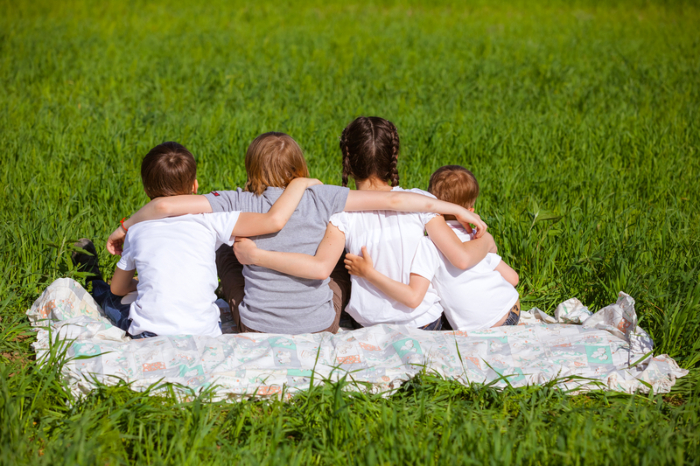- Calls to this hotline are currently being directed to Within Health or Eating Disorder Solutions
- Representatives are standing by 24/7 to help answer your questions
- All calls are confidential and HIPAA compliant
- There is no obligation or cost to call
- Eating Disorder Hope does not receive any commissions or fees dependent upon which provider you select
- Additional treatment providers are located on our directory or samhsa.gov
Mood & Weight in Youth

It is not uncommon for there to be at least one scale in households across America and, every day, individuals jump on them, see a number, and make inferences that have nothing to do with that number.
Inferences about their worth, their value, their lovability, their likelihood of achieving happiness and success.
This tendency is known as self-weighing and is a practice that our culture has normalized with dangerous results.
Youth & Self-Weighing
Research shows that rates of children and adolescents engaging in self-weighing are increasing, resulting in “decreased self-esteem, and increased anxiety and depression [1].”
Frequent self-weighing also results in increased unhealthy weight-control behaviors [1].
This is due to our society’s false perception that having weight or fat is “undesirable” or “unacceptable” and that it says something about an individual’s worth, success, or work ethic.
Essentially, children are being taught that being or having fat or weight is “not good” and that they must engage in behaviors to avoid this.
Self-Weighing & Mood
Self-weighing is more related to the mood of an individual when they perceive what they read on the scale as information that relates to something deeper than just a number.
Let’s be clear, weight is solely that – a number. .
Weight does not have anything to do with who an individual is, how worthy they are, or what their life looks like.
Now, you may think, “weight must at least show the health of a person?”
In fact, even this is debatable, as research is showing that weight does not necessarily indicate whether an individual is medically well or unwell.
Even so, society conditions us to assume something as subjective, minimal, and insignificant as the number on a scale says so much about ourselves and others.
As such, self-weighing often results in youth experiencing negative mood alterations when self-weighing because they perceive the number on the scale as more meaningful than it is.
Gender Differences
Studies also indicate that response to self-weighing differs based on gender identification.
It appears that women are more susceptible to mood changes related to self-weighing.
One study theorizes that “among females, there is greater societal pressure to be thin and an increased likelihood of internalizing the thin ideal, while among males there is a desire for leanness and simultaneous desire for increased muscularity [1].”
However, it is important to acknowledge that individuals of all gender orientation identities experience pressure related to weight and appearance and that children and adolescents are vulnerable to this pressure.
Protecting Children & Adolescents
One of the best things that can support children and adolescents in not being impacted by society’s negative beliefs related to weight and worth is to remove the importance of weight from their upbringing altogether.
Children and teens do not need to know their weight.
Removing scales from the household can help to de-emphasize weight.
Additionally, when a child goes to the doctor, recognize that they do not need to know their weight but also explain to them why their doctor may need that information for medical purposes.
The children and teens in your life will follow your lead on beliefs related to body weight, size, and shape as well as worth, self-compassion, and self-view so be sure that the messages you are sending are helpful.
Resources
[1] Hahn, S. L. (2021). Self-weighing among young adults: who weighs themselves and for whom does weighing affect mood? A cross-sectional study of a population-based sample. Journal of Eating Disorders, 9:37.About the Author:
 Margot Rittenhouse, MS, PLPC, NCC is a therapist who is passionate about providing mental health support to all in need and has worked with clients with substance abuse issues, eating disorders, domestic violence victims, and offenders, and severely mentally ill youth.
Margot Rittenhouse, MS, PLPC, NCC is a therapist who is passionate about providing mental health support to all in need and has worked with clients with substance abuse issues, eating disorders, domestic violence victims, and offenders, and severely mentally ill youth.
As a freelance writer for Eating Disorder Hope and Addiction Hope and a mentor with MentorConnect, Margot is a passionate eating disorder advocate, committed to de-stigmatizing these illnesses while showing support for those struggling through mentoring, writing, and volunteering. Margot has a Master’s of Science in Clinical Mental Health Counseling from Johns Hopkins University.
The opinions and views of our guest contributors are shared to provide a broad perspective on eating disorders. These are not necessarily the views of Eating Disorder Hope, but an effort to offer a discussion of various issues by different concerned individuals.
We at Eating Disorder Hope understand that eating disorders result from a combination of environmental and genetic factors. If you or a loved one are suffering from an eating disorder, please know that there is hope for you, and seek immediate professional help.
Published April 26, 2021, on EatingDisorderHope.com
Reviewed & Approved on April 26, 2021, by Jacquelyn Ekern MS, LPC


